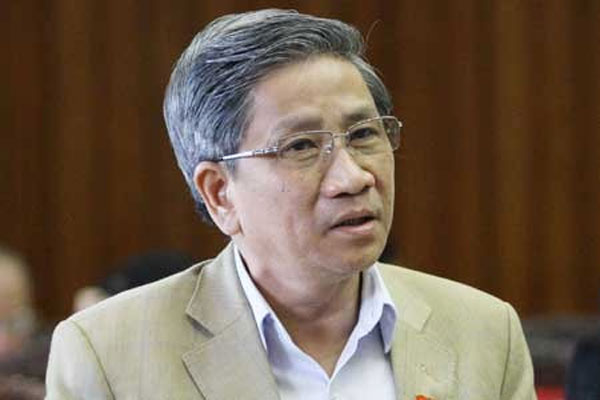VietNamNet Bridge – Nguyen Minh Thuyet, editor in chief of the curriculum for comprehensive education reform, tells the Kinh te Do thi (Economic and Urban Affairs) newspaper that the reform must ensure harmonisation throughout the curriculum.

Nguyen Minh Thuyet
Are there changes between the first and second draft of the plan on comprehensive education reform by the Ministry of Education and Training?
The only changes are minor. For example, the secondary school learning programme focuses more on occupational education and the high school learning programme is re-organised right from the 10th grade.
Regarding the study periods, there is a slight change to tailor them to teaching conditions. For example, more than 70 per cent of primary schools have morning and afternoon hours throughout the week. However, in some disadvantaged localities, pupils only study three or even two and a-half days a week. That means the core teaching programmes will be the same nationwide while the non-core teaching programs are optional for head masters to decide.
Don’t you think the decision to reduce study periods in all primary, secondary and high schools may result in a negative trend of extra classes organised by the teachers?
The argument of people supporting the idea of reducing the number of study periods is to give students more time for other activities. On the other hand, many parents want their children to study more so they can broaden their knowledge.
Some developed economies provide 7,400 periods a year, while others provide 8,000. In our country the number is between 6,200-6,900 periods a year.
So in my opinion, whatever final decisions are made, they must be based on actual circumstances, not on the will of people in power.
Many people complain that foreign language classes are insufficient. How do you respond?
The increase or decrease of foreign language classes in our general school system must be based on actual fact. For example, if we want to double foreign language periods, we have to cut down other subjects. However, all subjects are important. In addition, if we decide to double foreign language learning in primary schools (we now have almost 11,000 primary schools nationwide) or in secondary schools (almost 3,000 secondary schools nationwide), we have to double the number of foreign teaching staff. This is absolutely impossible.
However, if parents want their children to have more time to study foreign languages they may ask the schools to organise extra classes.
Many parents have expressed concerns about the proposed integrated teaching programme of physics, chemistry and biology. Would you explain that proposal?
Integrated teaching programmes are a common trend nowadays in general schools world wide.
However, we should understand that the teaching of each subject is arranged separately – not mixed together. Teachers who specialise in physics will teach physics, and teachers who specialise in chemistry will teach chemistry, and so on. But the most important idea of the integrated teaching programme is the arrangement of these subjects in a scientific way so that they complement each others.
If the three subjects still need three teachers, why do we need to integrate the three subjects into a new subject called natural science?
It depends on the development of science. Each scientific area can be separated into different branches. However, for the time being, it is a common trend to have an inter-disciplinary science subject. We hope the teaching of an inter-disciplinary subject will help learners obtain more comprehensive knowledge. This change in the education system could see a paradigm shift from knowledge acquisition to how students can use knowledge to solve problem.
Would you please elaborate on the occupational orientation for high school students?
One of the objectives of the new curriculum is to help students find jobs suitable to their capacity after graduation.
We’ll only provide them with information about major occupations and the labour market for them to think about. The next thing is to help the students evaluate their interests and capacity.
Last but not least, we’ll help the students choose their path after graduation – whether to learn a profession or to continue their academic education.
VNS